10 Products That Will Shake Up The Hybrid Cloud Market In 2019

Year Of The Hybrid Cloud
What looked a few short years ago like a looming and inevitable winner-take-all deathmatch between public and private cloud has come to a surprisingly amicable armistice.
The market has spoken, telling warring vendors on both sides of the public-private divide that enterprises envision hybrid environments for years to come.
"We're seeing this reinforcement from enterprises that there's a lot of value having flexibility long term. And that's not just one or two public clouds, but also running things efficiently in your data center," said Brian Kelly, CEO of CloudBolt, a hybrid cloud management startup.
Having heard that message loud and clear, name-brand cloud providers have taken to partnering and innovating at a rapid clip, racing to bring to market comprehensive, manageable, extensible and secure hybrid solutions.
"Some of these companies' willingness to work together just a few short years ago didn't seem to be possible," Kelly said.
As public clouds look to extend their reach into the corporate data center, and on-premises vendors connect to hyper-scale powerhouses, the ultra-competitive hybrid market will only heat up in 2019. How those alliances and battles play out will shape the future landscape of the IT industry for years to come.

Google Cloud Services Platform Brings GKE On-Prem
Google's Urs Hölzle, senior vice president for technical infrastructure, demonstrated Google Cloud's upcoming managed container service last year by running a Kubernetes cluster on a vSphere-virtualized server set up next to him on the stage in San Francisco.
Last month, Google released in beta Cloud Services Platform, for the first time taking GKE (Google Kubernetes Engine) out of its own data centers. The managed container service, built on open APIs, also integrates Istio service mesh technology to facilitate micro-services deployed across hybrid environments.
Google sees Cloud Services Platform simplifying hybrid adoption by enabling secure and compliant infrastructure spanning its public cloud and on-premises infrastructure.
"Cloud computing is still missing a simple way to combine cloud with your existing infrastructure or other clouds," Hölzle said when he presented the service at the 2018 Google Next conference.
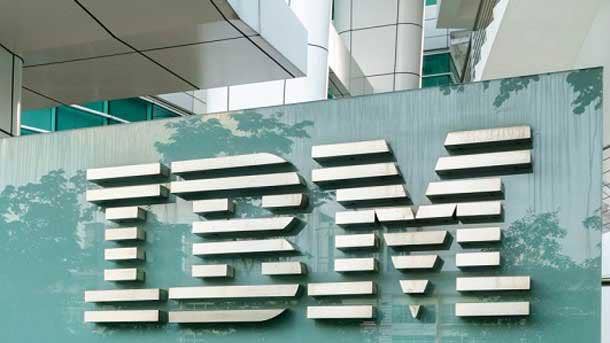
IBM's Red Hat
We know IBM's blockbuster acquisition of Red Hat was all about hybrid cloud. We just don’t know what that exactly will mean as far as product integrations and joint offerings.
Once IBM completes the $34 billion takeover of the industry's largest open source software vendor, it will almost certainly look to take advantage of the stronghold Red Hat has built in the Kubernetes management market to deliver a cross-cloud experience.
IBM could aim to harm competitors by pulling support for Red Hat products. Or, at the other extreme, it could largely leave Red Hat alone, allowing the open source leader to boost its revenue and deliver valuable mind share as an independent division.
More likely, IBM will leverage Red Hat to get a leg up for its own infrastructure, while still allowing the technology to play nice with competitors. That entails a tighter integration between Red Hat's portfolio and IBM Cloud, creating an easier migration path for legacy workloads to Big Blue's public and private infrastructure.
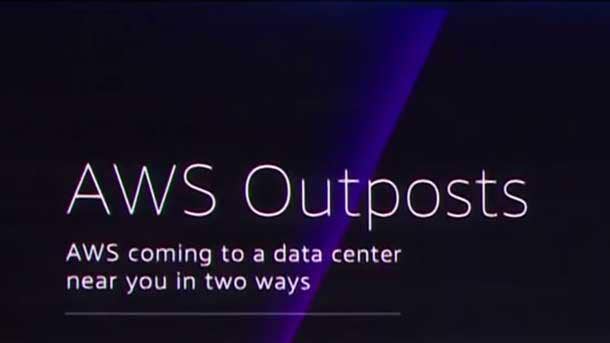
Amazon Stakes New Ground With Outposts
Amazon Web Services shocked the industry late last year when it announced it was preparing to release an on-premises product.
Amazon Outposts, when it hits the market later this year, will deliver fully managed and configured compute and storage racks built with AWS hardware that run in the customer's data center. Outposts will also be available with a VMware-virtualized option.
"Customers are telling us that they don’t want a hybrid experience that attempts to re-create a stunted version of a cloud on-premises because it's perpetually out of sync with the cloud version and requires a lot of heavy lifting, managing custom hardware, different control planes, different tooling, and manual software updates," AWS CEO Andy Jassy said.
A native extensive of the AWS cloud into the corporate data center will surely be a game-changer that forces competitors to react.

VMware Cloud On AWS Matures
The groundbreaking joint offering from the public and private cloud leaders has matured over the last year and will likely continue to develop capabilities and win market share in 2019.
Prices have fallen for VMware Cloud on AWS, and the hybrid service has expanded across the globe.
VMware recently closed its first $20 million deal stemming from its partnership with Amazon.
But there's still more that can be done in integrating native AWS features into the service, extending the underlying infrastructure options supporting those deployments, and expanding the product's reseller channel.
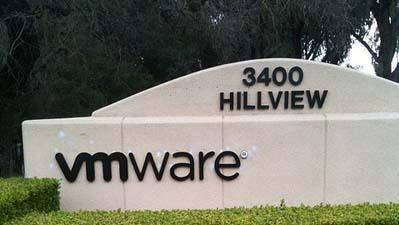
Waiting For VMware On Microsoft
While no official announcement has been made, a partnership to extend VMware's virtualized compute infrastructure into the Microsoft Azure cloud appears certain and will likely change the dynamics of the hybrid services market.
The VMware-Microsoft alliance, expected to be revealed to the public in the near future, could provide a counterweight to VMware Cloud on AWS.
The Information reports joint development is under way for the hybrid cloud solution—possibly part of a broader partnership between the two software powerhouses that for years have been bitter rivals.
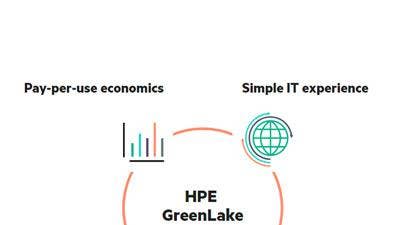
HPE GreenLake Hybrid Cloud Extends Consumption-Based Private Infrastructure
Much of the hybrid excitement over the last two years has been generated by hyper-scale public providers taking bold steps into the enterprise data center. But HPE is leveraging its dominant on-premises position, and latest innovations in consumption-based IT, to make its mark on the hybrid market.
The recently unveiled GreenLake Hybrid Cloud, built partly with intellectual property obtained in HPE's acquisition of Microsoft Azure provider Red Pixie, connects the flexible GreenLake on-premises infrastructure directly to Amazon Web Services and Microsoft Azure services.
Supporting HPE's hybrid solution with turnkey managed services is the OneSphere platform that enables performance optimization, cost controls, security and compliance.
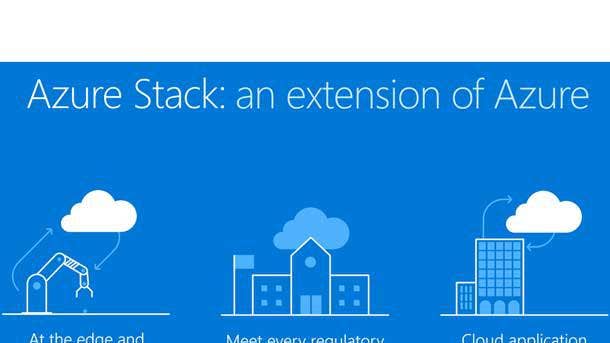
Microsoft Azure Stack Already A Hybrid Elder
While more-recent entrants have seized a lot of attention of late, Microsoft's integrated stack spanning on-premises and public cloud infrastructure has given the world's largest software company and second-leading public cloud provider a strong foothold in the hybrid market.
Azure Stack, released two years ago, established a solid foundation for Microsoft as it builds out newer hybrid offerings in an increasingly competitive market. Last year, Microsoft introduced a government version of the hybrid solution.
Co-engineered solutions with the likes of HPE are also driving what Microsoft CEO Satya Nadella describes as "incredible customer demand" for the product.
"We're the only cloud provider that provides true hybrid cloud computing with Azure and Azure Stack," Nadella said in an earnings call last year.
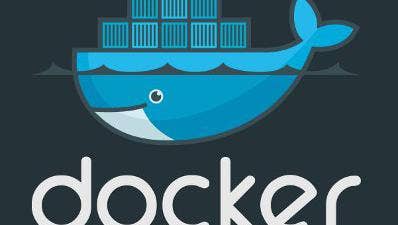
Docker Enterprise Bets On Enabling Best-of-Breed Cloud Services
The key to a capable hybrid environment is containers, and more specifically, Kubernetes.
Container pioneer Docker, having developed a rival orchestration solution, was late to embrace that technology spun out of Google, but has made significant inroads of late in bringing an enterprise-grade Kubernetes platform to market.
Docker Enterprise, the startup's commercial container management platform, looks to differentiate itself in a crowded field with the "promise of choice," Docker CEO Steve Singh said last year at his company's DockerCon conference.
In 2018, Docker introduced a federated control plane that can manage Kubernetes clusters running on Docker's on-premise platform or across native Kubernetes services from the hyper-scale heavyweights—Amazon EKS, Azure AKS, and Google GKE.
By enabling adoption of best-of-breed services, Docker has positioned the hyper-scale public clouds, all of which now offer managed Kubernetes services, as partners and not competitors, Singh said.

From Oracle To Oracle
Oracle, still fighting to carve out significant public cloud market share, is looking to leverage its on-premises stronghold as a hybrid differentiator.
To that end, the software giant revealed the Oracle Cloud Native Framework at the KubeCon Kubernetes conference late last year. The bundle of cloud-native environments and services was designed for customers looking to build hybrid cloud architectures.
Oracle describes Oracle Cloud Native Framework as an "open" development solution. But it remains to be seen if the strategy in any way involves forming alliances or playing nice with competitors.
The database giant looks primarily interested in encouraging the broad base of customers using its on-premises software and hardware to extend their workloads into the OCI (Oracle Cloud Infrastructure) public cloud.
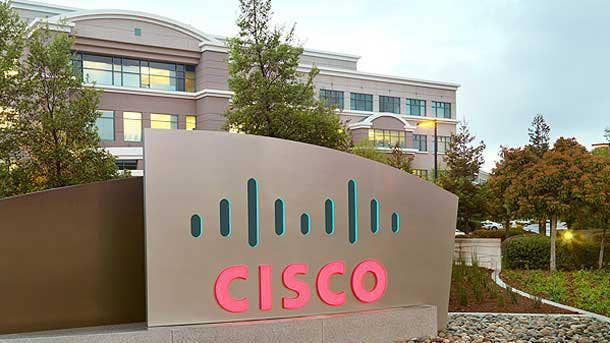
Cisco Makes Friends
Networking leader Cisco Systems is looking to make a mark on the emerging hybrid cloud landscape by expanding its partnerships with public cloud providers.
In an interview last summer, Cisco Systems Chairman and CEO Chuck Robbins told CRN he expects more and deeper alliances with hyperscale powerhouses, along with integrated channel programs to support them, as customers adopt multi-cloud business models.
Cisco has already forged a high-profile hybrid partnership with Google and has relationships with Amazon Web Services and Microsoft Azure, Robbins noted.
"One of the core drivers of our overall strategy is the multi-cloud transition," Robbins said. "By definition, that means we're going to build solutions that allow our customers to apply security and policy and traffic management to whatever cloud service they choose."